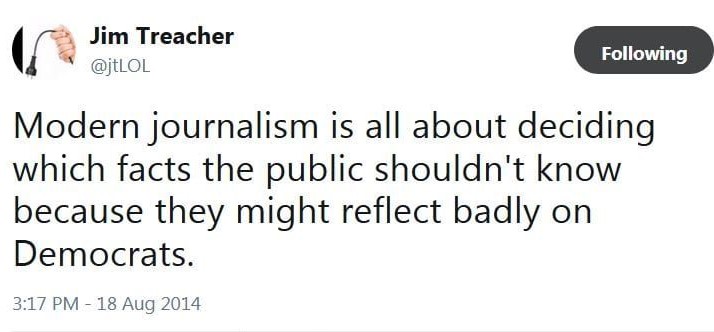Commentary
“The lesson learned from 2020 may well be that there’s also a danger of suppressing accurate and relevant stories,” wrote Richard Lempert of Arlington, Virginia to the editor of the Washington Post.
How perceptive, I thought, as I read Lempert’s comment, written in response to the Post’s editorial, “The Hunter Biden story is an opportunity for a reckoning,” but regretfully he didn’t stop there.
“Maybe this is true in some cases, but not this one,” he added, “the Hunter Biden stories were used to suggest that then-Democrat presidential nominee Joe Biden was corruptly involved with Hunter Biden. These stories would not have been the subject of so much attention by right-wing and right-leaning media if this were not the point to be made.”
Exactly! The American voters had a right to know. The New York Post, practicing responsible journalism, published facts from the Hunter Biden laptop, but it was the Washington Post, other left-leaning mainstream news outlets, and social media entities, like Twitter and Facebook, that kept it from voters; many of whom who said they would not have voted for Biden had they known.
We cannot forget the role the FBI played in sitting on the laptop, and those 51 former intelligence officials who passed the laptop story off as Russian misinformation.
Drawing a comparison of stories about the 2016 Democrat nominee Hillary Clinton’s emails, Lempert wrote, “(they) should have taught us: When matters have little or no relationship to a candidate’s qualifications for office, the media should not be trumpeting them in the month or two before an election.”
She has a private server containing classified documents, some 33,000 of them missing, and it has “Little or no relationship to a candidate’s qualifications for office?” Is he serious?
Lempert failed to mention the left’s accusations of former President Trump colluding with the Russians, and the involvement of the Clinton campaign during an election period. Again, with the help of her supporters in the FBI, a case was being fabricated against Trump.
Those who thought the Washington Post was going to fess up with its censorship with the headline offering an opportunity for a reckoning, should have known better.
Though the paper conceded that the documents in the laptop were authentic only after the New York Times had done so on March 17, 2022, its editorial board insisted “What it doesn’t do is prove that President Biden acted corruptly.”
“It makes obvious sense for newspapers to wait to verify information before turning it into a story,” the board wrote, without an explanation for their paper’s inability to confirm the story broken by the Miranda Divine at the New York Post 16 months earlier. “The harder conundrum is what to do with true information when it comes from a hack, and harder still is how to treat true information that hasn’t been stolen but has been selectively shared to further an agenda,” the board continued.
The Washington Post continues to avoid coverage referencing the “Big Guy,” and Hunter’s mention of “Pops,” and deny allegations of a coverup or even a double standard of treatment.
While the paper declared “there was reason in this case for reluctance … it was only prudent to suspect (misinformation),” it concluded its editorial conceding that “the lesson learned from 2020 may well be that there’s also a danger of suppressing accurate and relevant stories.”
That’s as close as we’ll get to an apology for its role in helping Biden win by suppressing the news.
Finally, I find it interesting that the Washington Post continually support’s the Democrat Party’s unfounded concern that the right is out to dismantle our democracy, when it is the Post, with its motto – Democracy Dies in Darkness – that is unhesitatingly doing so with its journalism malpractice.
Beyond “The Post”
During an appearance by Anne Applebaum of the Atlantic at an “Erosion of Democracy” conference at the University of Chicago, a college freshman inquired if she regretted not taking the laptop seriously a year and half ago.
She dismissively said “my problem with Hunter Biden’s laptop is I think it’s totally irrelevant. I didn’t think Hunter Biden’s business relationships had anything to do with who should be president of the United States. I don’t find it to be interesting.”
Another student called out Brian Stelter and CNN for being a “purveyor of disinformation, pointing not only to the laptop story, but the Russian collusion hoax, Jussie Smollett, and the smearing of Justice Kavanaugh and Nick Sandmann.
Now, more than ever … may God continue to bless the United States of America.






